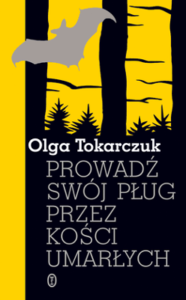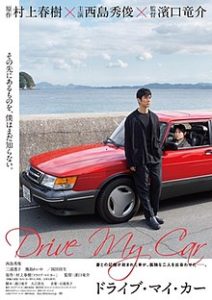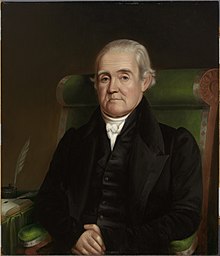
Drive Your Plow Over the Bones of the Dead
By Olga Tokarczuk
318 pages
Originally published Nov. 25, 2009
Published in English Sept. 12, 2018
This was April’s selection for The Mules, my men-only book club. I listened to most of it, and read only a part of it. The reading was better.
There are many things about this book that are difficult to put a pin in. What can be said with certainty is that it was written by Olga Tokarczuk; it was originally published in Polish; and it was translated into English by Antonia Lloyd-Jones. It was shortlisted for the 2019 International Booker Prize and the International Dublin Award. And to top it off, Tokarczuk was given the Nobel Prize in Literature two months after the novel’s US release.
The Plot
In a small village in Poland, men are being mysteriously murdered. Janina Duszejko, an eccentric ex-engineer turned school teacher, living alone outside of town, takes it upon herself to figure out what is going on. Her expertise is scientific, but her primary reference point for research is astrology. Her perspective is unsophisticated and unreliable. And she talks, and often acts, like a mentally troubled bag lady.
According to a review in The Guardian, Drive Your Plow is much more than a murder mystery. It’s a primer on the politics of vegetarianism, a dark feminist comedy, an existentialist fable, and a paean to William Blake.
“Though the book functions perfectly as noir crime – moving towards a denouement that, for sleight of hand and shock, should draw admiration from the most seasoned Christie devotee – its chief preoccupation is with unanswerable questions of free will versus determinism, and with existential unease.”
To be sure, the protagonist is constantly wondering about such things.
The reviewer again:
“Janina opens a kitchen drawer and looks at the ‘long spoons, spatulas and strange hooks’ and thinks, in a moment of purest Sartre: ‘I would really like to be one of those Utensils.’ She knows herself to be trapped – ‘I cannot be someone other than I am. How awful’ – but refuses to be a dutiful prisoner of society and gender.”
I found the book whacky and difficult to read. And there were many times I felt like I was plowing over bones – the 21st century’s most bleached out and bone-brittle cliches. But I may be wrong about that. As you can see below, the book has been almost universally praised.
Critical Reception
* “A brilliant literary murder mystery.” (Chicago Tribune)
* “A winding, imaginative, genre-defying story. Part murder mystery, part fairy tale, Drive Your Plow is a thrilling philosophical examination of the ways in which some living creatures are privileged above others.” (TIME)
* “Shimmering with subversive brilliance…. this is not your conventional crime story – for Tokarczuk is not your conventional writer. Through her extraordinary talent and intellect, and her ‘thinking novels,’ she ponders and tackles larger ecological and political issues. The stakes are always high; Tokarczuk repeatedly rises to the occasion and raises a call to arms.” (HuffPost)
* “Sometimes the opening sentence of a first-person narrative can so vividly capture the personality of its speaker that you immediately want to spend all the time you can in their company. That’s the case with…. Drive Your Plow…. [a] barbed and subversive tale about what it takes to challenge the complacency of the powers that be.” (Boston Globe)
Interesting
The novel was adapted to film in 2017, titled Spoor (Polish: Pokot), directed by Polish director Agnieszka Holland. It won the Alfred Bauer Prize (Silver Bear) at the 67th Berlin International Film Festival.
About Olga Tokarczuk

Olga Nawoja Tokarczuk is a Polish writer, activist, and public intellectual. She has been described in Poland as one of the most critically acclaimed and commercially successful authors of her generation. All told, she has published a collection of poems, several novels, as well as shorter prose works.
Tokarczuk was born in Sulechow, in western Poland. (One of her grandmothers was from Ukraine.) She trained as a psychologist at the University of Warsaw and, during her studies, volunteered at an asylum for adolescents with behavioral problems.
A leftist, a vegetarian, and a feminist, Tokarczuk has been criticized by some Polish groups as unpatriotic, anti-Christian, and a promoter of eco-terrorism. Denying the allegations and describing herself as a “true patriot,” she turned the tables on her critics, labeling them as xenophobes who are damaging Poland’s international reputation. (Source: Wikipedia)
I didn’t like the book. But I liked some of her answers to questions posed to her in an interview with The Guardian…
The book I am currently reading:
“Yuval Noah Harari’s Homo Deus. This is the second of his I’ve read and it has many inspirations in it – not least a collection of very good ideas for uncanny short stories. I’ve published 10 in Poland already and I now think I should have read Harari before I wrote them.”
The book that changed my life:
“I first read Sigmund Freud’s Beyond the Pleasure Principle as a young girl, and it helped me to understand that there are thousands of possible ways to interpret our experience, that everything has a meaning, and that interpretation is the key to reality. This was the first step to becoming a writer.”
The author that influenced my writing:
“I think in Poland many writers would give the same answer: Bruno Schulz, whose very beautiful, sensitive, meaningful stories raised the Polish language to a completely different level. I love him but I also hate him because there’s no way to compete with him. He’s the genius of the Polish language.”
The book that changed my mind:
“I would choose two names, rather than specific books, from the world of poetry. When I was a teenager I fell in love with T.S. Eliot. I first stole a book from the library, then started to collect all his works. My favourite poem is ‘The Love Song of J. Alfred Prufrock.’ The second is Czesław Miłosz, who was a great poet and also a great essayist and who changed my mind about writing.”
 MarkFord
MarkFord

